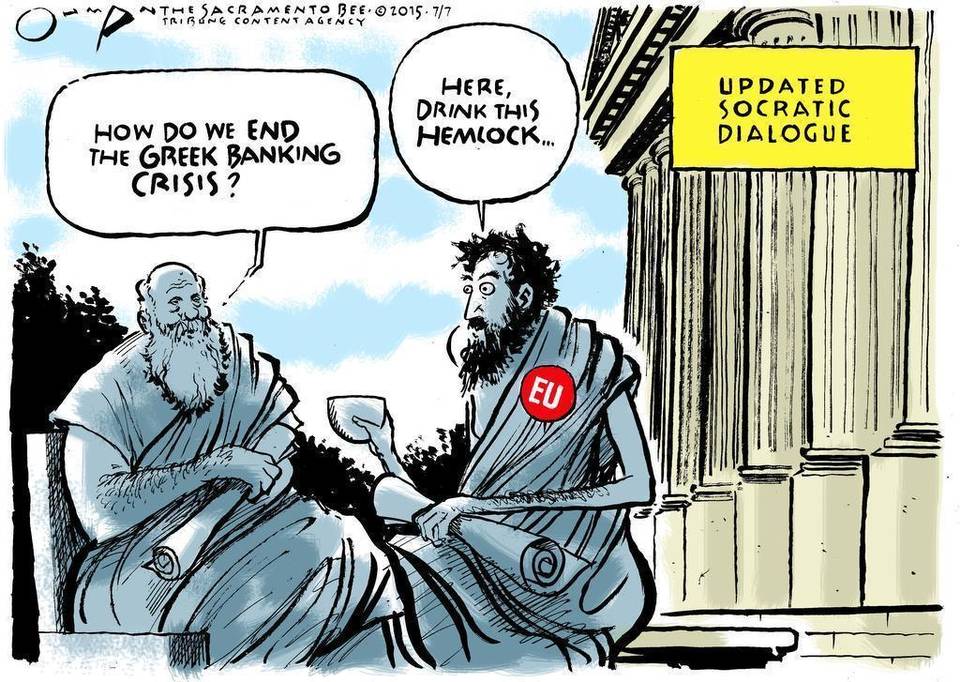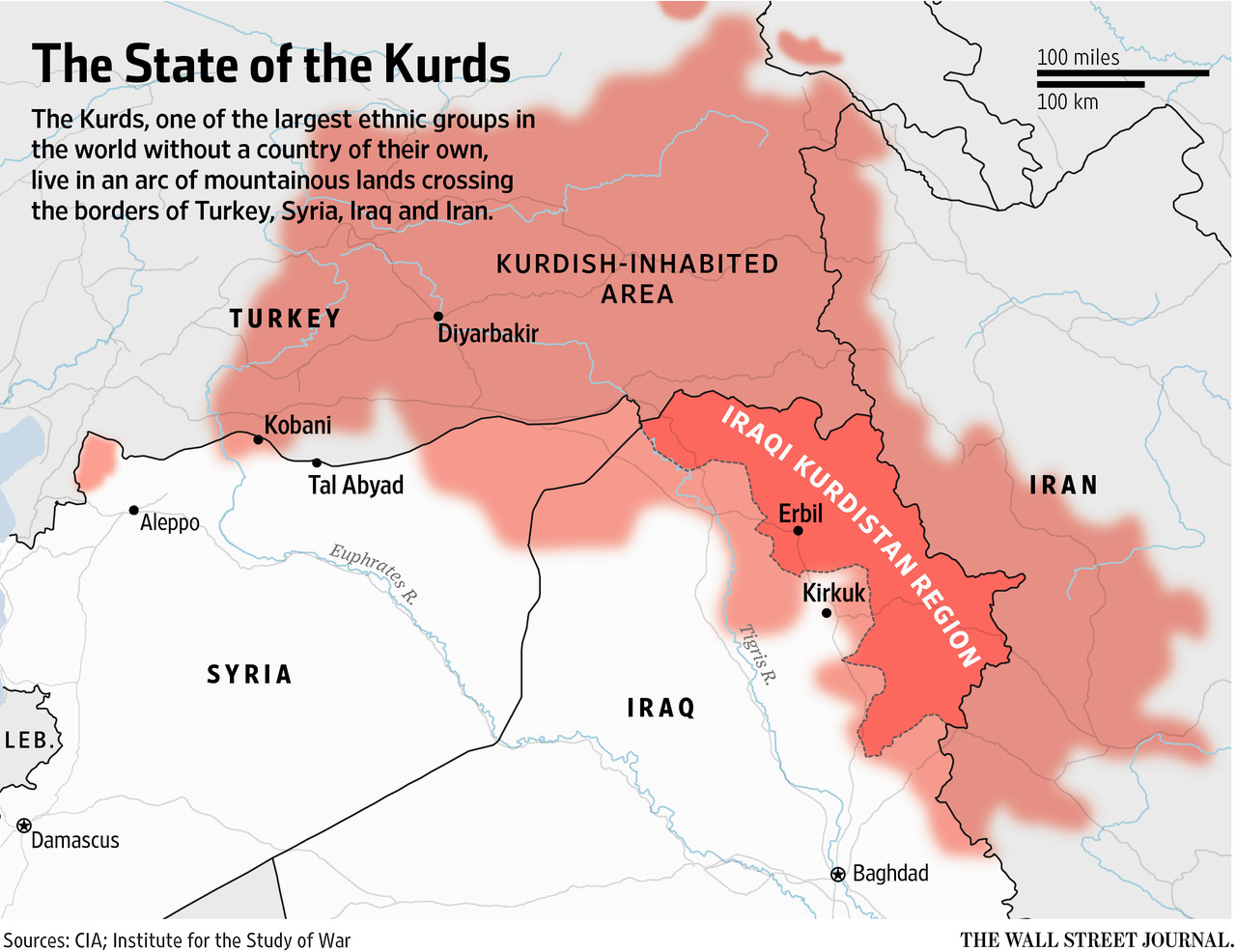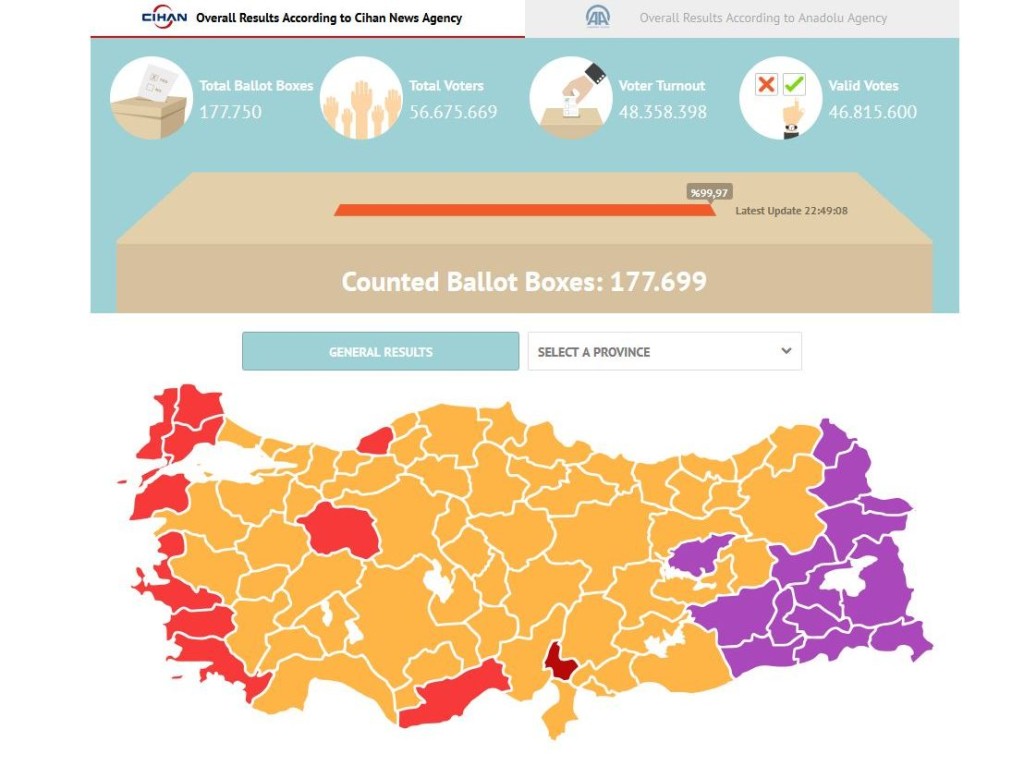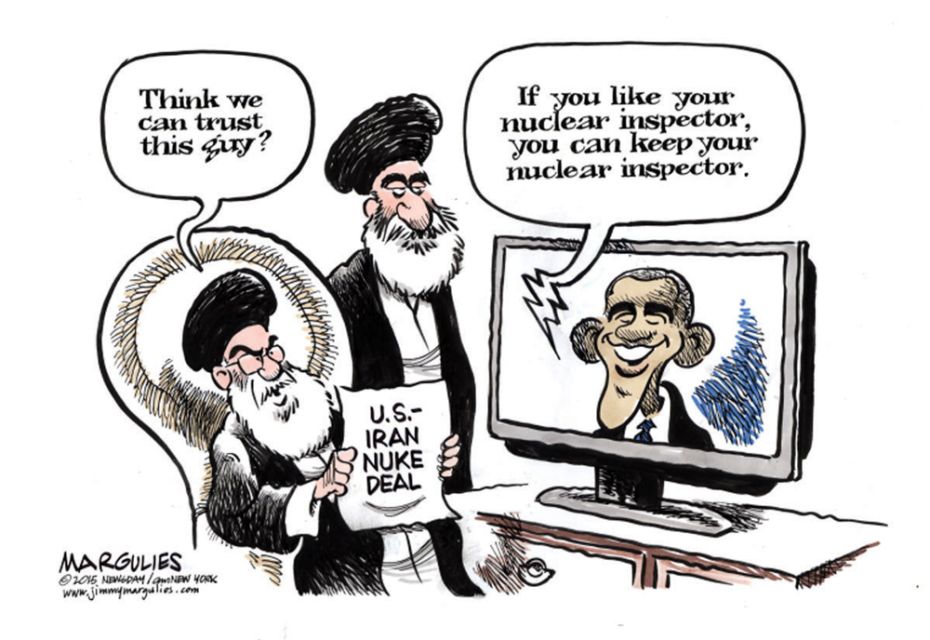Today’s wake-up call is for the Eurozone. Despite Wrongo’s generally pessimistic worldview, it was hard to imagine that we’d arrive at the insane juncture we have now reached, that of a Grexit (Greek withdrawal from the Eurozone), but it is all but certain. As this column is written, the Guardian is reporting that a four-page proposal is now circulating in Brussels that indicates that Greece could be offered a ‘temporary’ exit from the Eurozone if it doesn’t agree to a deal with its creditors.
If a Grexit comes to pass, it would be catastrophic, most of all for the Greek 99%. But it should blacken the names of everyone involved, most of all German Prime Minister Merkel. This sorry trajectory is occurring despite the Greek government prostrating itself, offering to meet much more stringent conditions than its voters overwhelmingly rejected in a referendum less than a week ago. Krugman writes that Greek PM Tsipras allowed himself to be convinced, some time ago, that euro exit was impossible. It appears that Syriza (the leading Greek political party) didn’t do any contingency planning for a parallel currency. This has left PM Tsipras in a hopeless bargaining position.
But surrender isn’t enough. There’s a substantial faction of the other Eurozone leaders that want to push Greece out. Germany seems willing to welcome them as the most Southern province of the new German Empire. They are asking for control of $50 billion of pledged Greek assets. This really means control of Greece.
It gives the Eurozone leaders a failed state as an object lesson for the rest of Europe’s near-deadbeats.
Since there are only terrible alternatives at this point, here is a wake up tune for the Eurozone leaders. Perhaps it will help Merkel find a way to offer a less destructive plan to Greece. Perhaps she can remember the debt relief and credit support given to post-Nazi Germany by the Allies, who wrote off 93% of the Nazi era debt in the early 1950s and stretched out the pre-Nazi debt incurred during World War I and the Weimar period well into the 21st century.
Here is our 2nd song of summer, Sheryl Crow’s “Soak Up the Sun”:
https://www.youtube.com/watch?v=ecW0nSrMEY4
Those who read the Wrongologist in email can see the video here.
Sample Lyrics:
My friend the communist
Holds meetings in his RV
I can’t afford his gas
So I’m stuck here watching TV
I don’t have digital
I don’t have diddly squat…
Your Monday Hot Links:
NASA’s New Horizons spacecraft took the first detailed photos of Pluto. The image below was taken on July 9, 2015 from 3.3 million miles away, with a resolution of 17 miles per pixel. It took nine and a half years to get this close, but at this range, Pluto is beginning to reveal the first signs of discrete geologic features:
London has become the money-laundering center of the world’s drug trade. According to an internationally acclaimed crime expert, UK banks and financial services have ignored so-called “know your customer” rules designed to curb criminals’ abilities to launder the proceeds of crime. The National Crime Agency (NCA) states:
We assess that hundreds of billions of US dollars of criminal money almost certainly continue to be laundered through UK banks, including their subsidiaries, each year.
Google’s algorithm shows prestigious job ads to men, but not to women. Researchers from Carnegie Mellon University built an app that found that when Google presumed users to be male job seekers, they were much more likely to be shown ads for high-paying executive jobs. Google showed the ads 1,852 times to the male group, but just 318 times to the female group. Well, you know Google’s use of its corporate motto “Don’t Be Evil”, ended in 2012 so this is probably OK.
Utah Valley University creates a ‘texting lane’ for busy staircase:
Good idea? You be the judge.

















